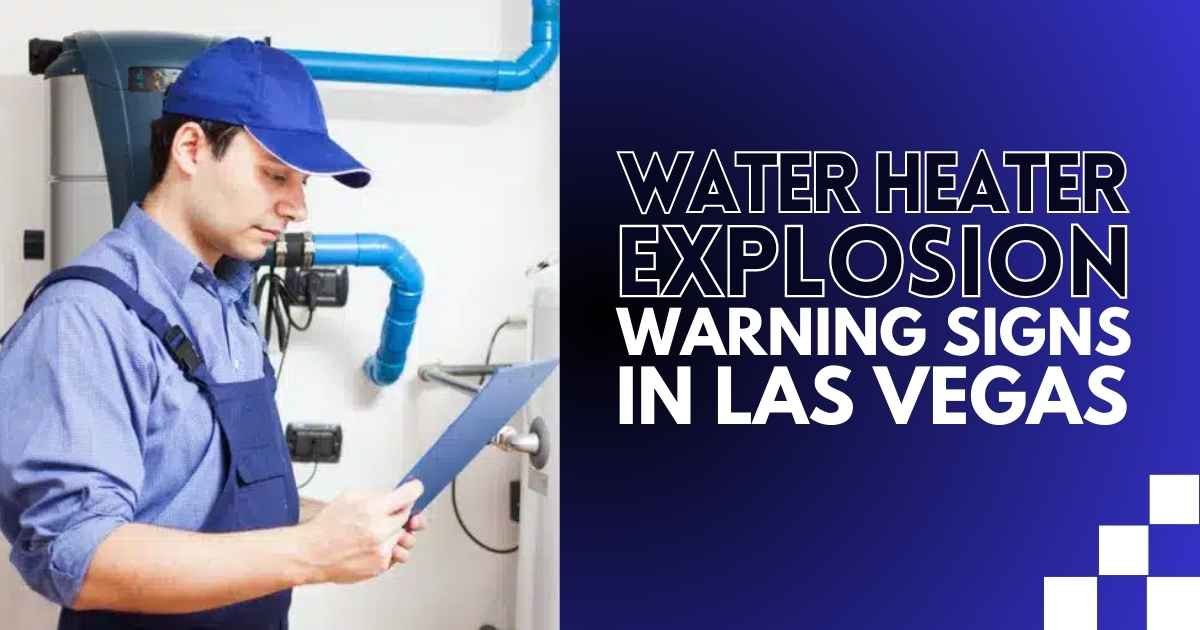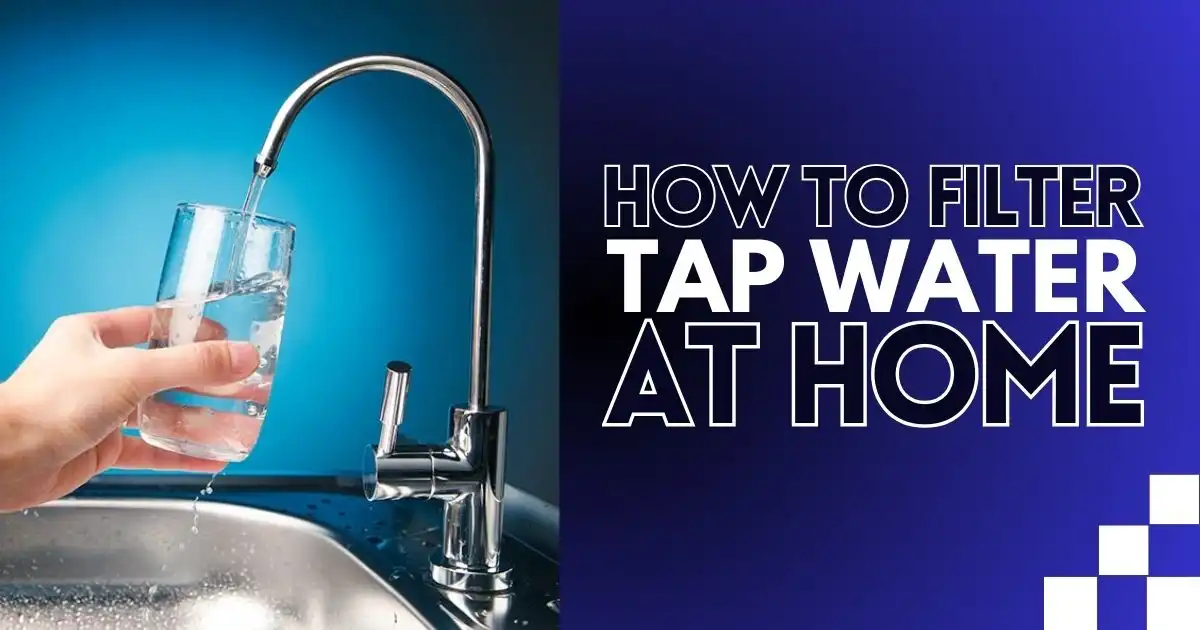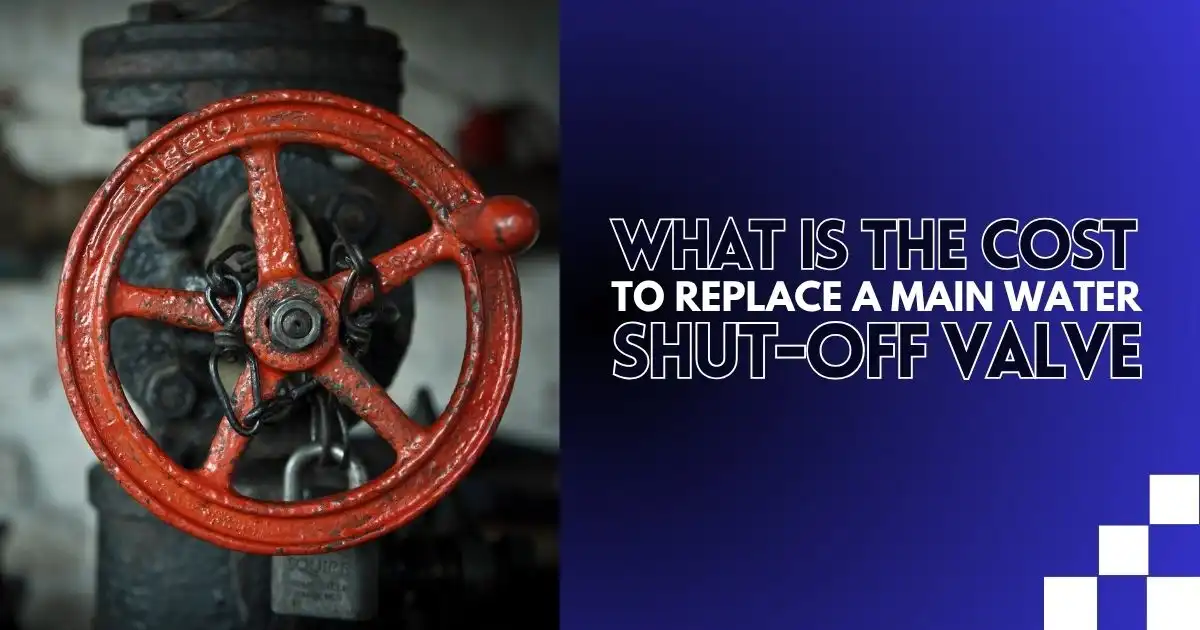You’re getting ready for a cozy evening at home, looking forward to a warm shower after a long day. But when you turn on the water, nothing happens. Panic sets in as you notice water flooding your floor. Your water heater has burst, and now you’re facing costly repairs you never saw coming. This could have been avoided if you had paid attention to the small warning signs.
Just like skipping routine check-ups on appliances, ignoring the signs can lead to bigger problems down the road.
6 Warning Signs of Water Heater Explosion
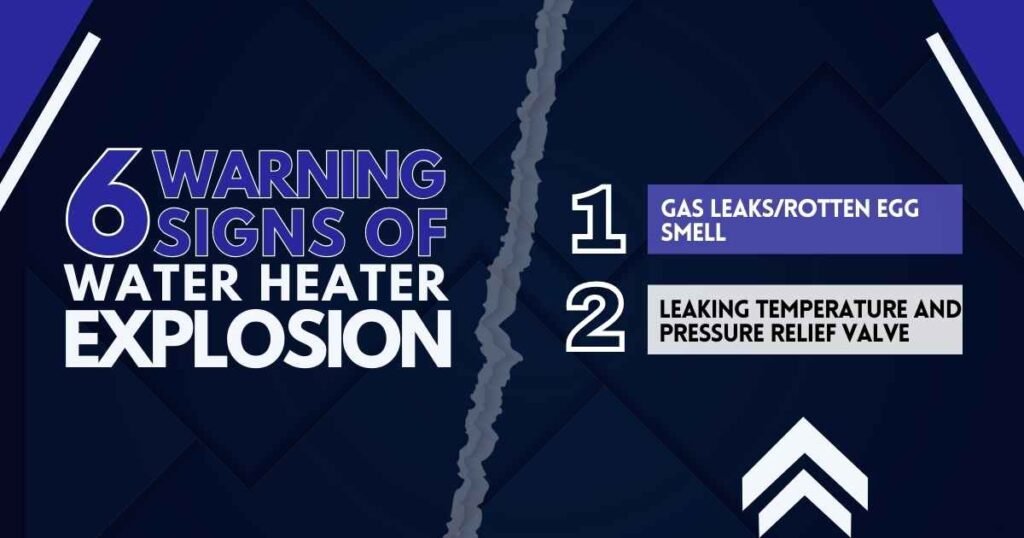
1. Gas Leaks/Rotten Egg Smell
If you smell rotten eggs or sulfur near your water heater, it could mean there’s a gas leak. Although gas is usually odorless, a chemical called mercaptan is added to help you detect leaks.
If gas leaks from the heater and comes into contact with a flame or spark, it could cause an explosion. In addition, gas leaks can lead to carbon monoxide poisoning, which is dangerous and potentially deadly. If you suspect a gas leak, immediately leave your home with everyone, including pets, and call 911.
2. Leaking Temperature and Pressure Relief Valve
The temperature and pressure (T&P) relief valve is designed to release excess heat or pressure in your water heater. If this valve is leaking more than usual, it could mean there’s too much pressure or heat building up in the tank, which is a potential explosion risk.
The valve may also be broken, and either situation requires quick attention. It’s important to call a Las Vegas water heater contractor to address this issue as soon as possible.
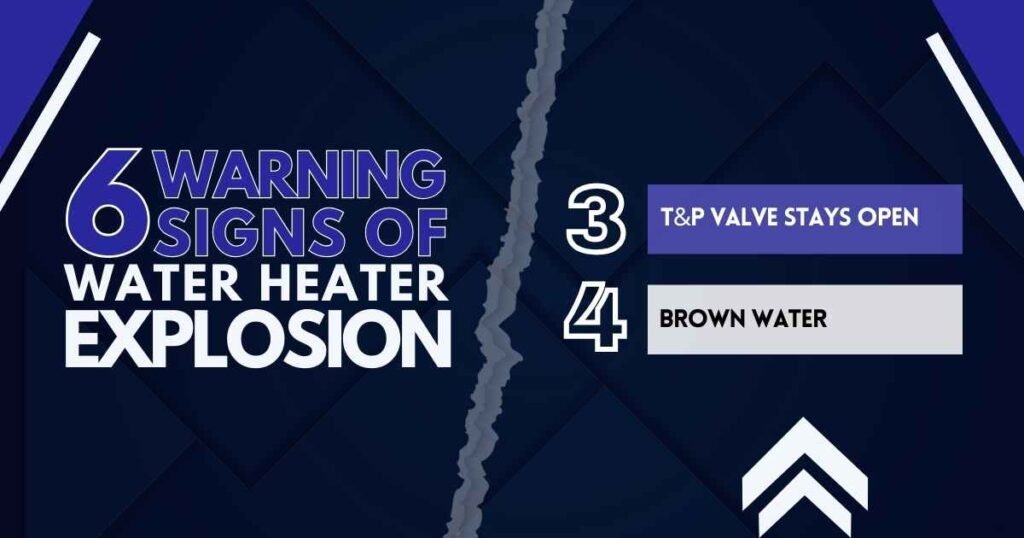
3. T&P Valve Stays Open
If the T&P valve remains open constantly, it’s a clear warning sign. The valve should open occasionally to release excess water and regulate the tank’s pressure.
If it stays open, it could either be broken or the tank is under too much pressure, both of which are serious problems. Get a professional to inspect and fix the issue right away.
4. Brown Water
Brown water from your faucets could be a sign of rust in your water heater’s tank. Over time, the metal tank may corrode and weaken, which increases the risk of leaks or even ruptures, leading to an explosion.
Rust in the water is a strong indicator that your tank’s structural integrity is compromised and needs attention.
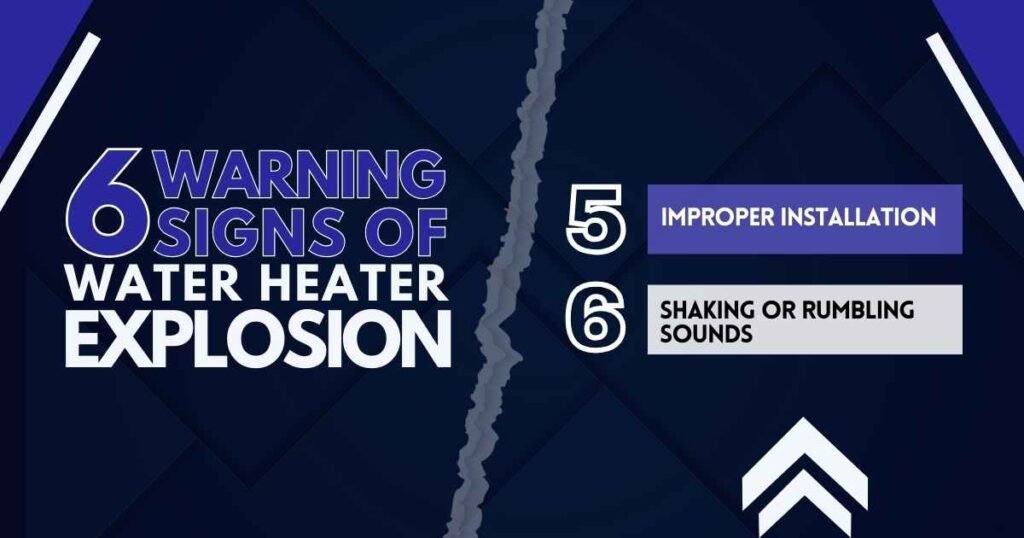
5. Improper Installation
If your water heater wasn’t installed correctly, it can lead to dangerous issues like gas leaks, improper venting, or faulty connections. These problems can cause excess pressure to build in the tank, increasing the risk of an explosion.
It’s essential to have your water heater installed and maintained by a licensed professional in Las Vegas to avoid these risks.
6. Shaking or Rumbling Sounds
Over time, minerals like calcium build up in the water heater’s tank, forming sediment. When the heater tries to warm the water, it has to work harder because of this sediment. This can cause boiling, creating steam pockets that make the tank shake or rumble.
This stress on the tank can cause rapid pressure changes and possible explosions. If you hear these noises, it’s a sign your tank needs maintenance, like draining or cleaning, to remove the sediment. Installing a water purification system can also help reduce mineral buildup.
Factors That Can Cause a Water Heater to Explode
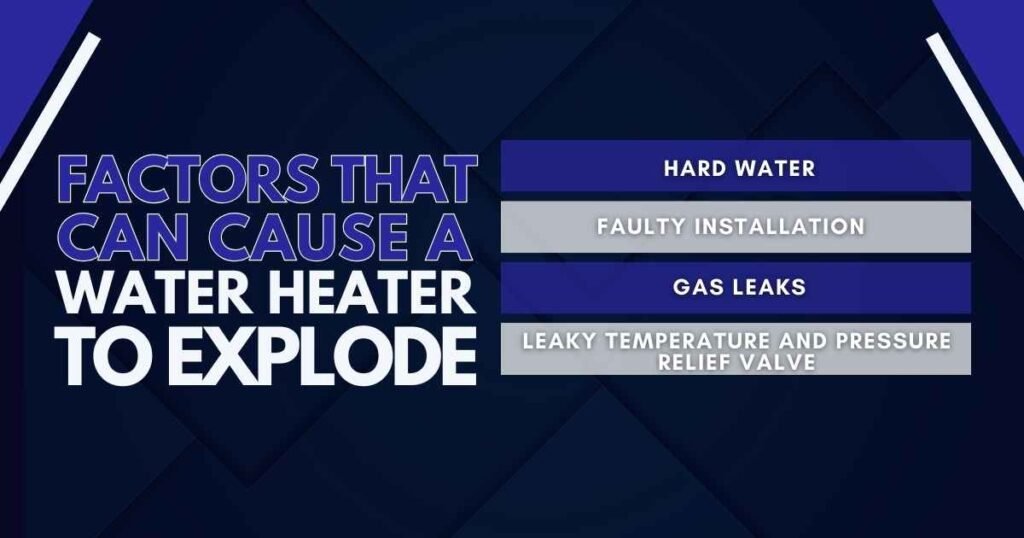
There are several things that can make your water heater explode. Knowing the common causes can help you explain the issue when you call a plumber to check it out. Let us know some key factors to watch out for:
- Hard Water: In areas with hard water, minerals like calcium and magnesium can build up in the heater, making it work harder to heat water.
- Faulty Installation: If your water heater wasn’t installed correctly, it can lead to various problems. A licensed plumber can fix improper installations.
- Gas Leaks: Many water heater explosions happen when a gas leak comes into contact with electrical wiring, which can start a fire.
- Leaky Temperature and Pressure Relief Valve: A faulty T&P relief valve can lead to a dangerous buildup of pressure and heat, which could cause an explosion.
Stay Ahead of Hidden Dangers
A water heater burst can cost you more than just money—it could cause serious damage to your home. You might think everything’s working fine, but there could be hidden problems you’re not seeing. Even careful homeowners can miss signs, just like business leaders rely on experts to avoid mistakes. We all have blind spots, and a fresh set of eyes can help us catch things we might overlook on our own.
At Vegas Plumbing Pros, we know how important it is to have expert guidance, if it’s for your home or business. Don’t wait for a disaster to strike—contact us today and let us help you make the best choices before it’s too late.
FAQs
Can small leaks from my water heater cause it to burst?
Yes, even small leaks can lead to a major burst if not fixed. It’s important to address any leaks right away to prevent bigger problems.
Can water heaters explode?
Yes, water heaters can explode if they have serious issues, like too much pressure buildup or a faulty pressure relief valve. Regular maintenance and checking for warning signs, like strange noises or leaks, can help prevent this from happening.
What are the common causes of a home water heater bursting?
A home water heater can burst due to excessive pressure buildup, sediment, corrosion, or a faulty pressure relief valve. Older heaters are especially prone to these issues. Regular maintenance and inspections can help prevent bursts and avoid damage.
How can I prevent a water heater explosion?
Regularly inspect the pressure relief valve to ensure it’s working. Lower the temperature setting to prevent overheating and flush the tank yearly to remove sediment buildup. These steps reduce the risk of explosions.
